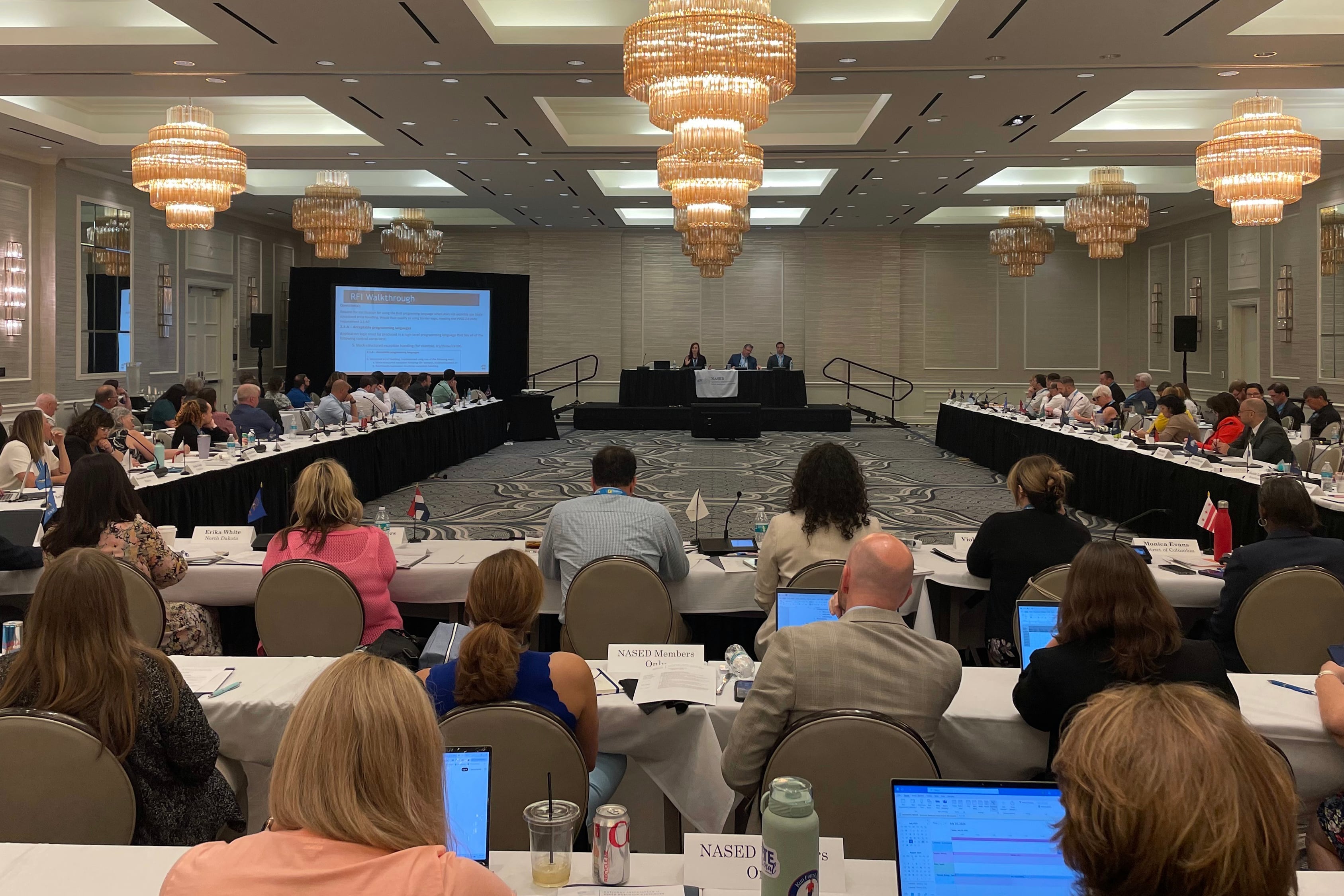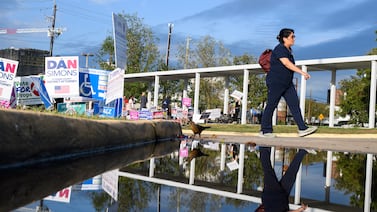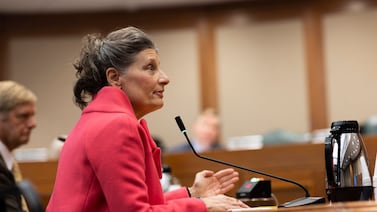Votebeat is a nonprofit news organization reporting on voting access and election administration across the U.S.
This news analysis was originally distributed in Votebeat’s free weekly newsletter. Sign up to get future editions, including the latest reporting from Votebeat bureaus and curated news from other publications, delivered to your inbox every Saturday.
This week, officials gathered at an Oklahoma City hotel for the annual National Association of State Election Directors conference. The hotel was reportedly haunted by “an amorous Prohibition-era chambermaid” named Effie, though no suspected ghost sightings were reported to Votebeat.
Election officials were, perhaps, haunted by other things.
Since President Donald Trump took office again, his Justice Department has been sending out letters to states with sweeping requests for information about how they maintain their voter rolls and ensure that only eligible people are registered.
Meanwhile, the administration is urging election officials around the country to use an existing federal immigration database called the Systematic Alien Verification for Entitlements program for a new purpose: to verify voters’ eligibility. The Department of Homeland Security recently overhauled SAVE to make it easier to search, and free for states to use.
Experts have questioned the accuracy and reliability of the data, given how quickly the system changes to SAVE were made this year. They’ve also raised concerns about how the federal government is using data uploaded by states, and whether using the tool outside its intended purpose could put people’ privacy or voting rights at risk.
For election officials who may share some of those concerns, the conference offered an opportunity to directly query a representative of the agency that oversees SAVE, U.S. Citizenship and Immigration Services, about how it works. It was one of several panels dedicated to various tools and databases available to help with voter registration and voter list maintenance.
Government agencies have been using versions of SAVE since the 1980s to verify people’s citizenship status and help determine whether they are eligible for benefits, David Jennings, who oversees policy and technology operations for the SAVE program, explained to state election directors.
The Trump administration this year pushed for adapting SAVE for checking voter rolls as well, as part of its campaign to eliminate the risk of noncitizen voting.
Following directives in Trump’s March executive order on elections, the government revamped the SAVE program so it allows state election officials to upload voter registration records for verification in bulk, instead of one by one. And whereas state officials previously could search it using only an alien number or naturalization certificate number, they now can also search by Social Security number. And there’s no longer a fee for states to use it.
U.S. CIS says 23 states currently have agreements to use SAVE for voter verification, including Texas. Last month, Texas referred 33 potential noncitizen voters to the state Attorney General’s Office for investigation, after running searches through SAVE. State officials said they were also able to use SAVE to validate the citizenship of “a ton” of other voters. Louisiana, Indiana, Kansas, Tennessee, and others have also touted agreements to access SAVE.
Jennings told election officials that SAVE does not store citizenship and immigration information in a centralized database. Rather, he said, it’s a search tool that “queries information for a person from 10 to 15 databases across the federal government.” He didn’t share details about the sources of the data but pointed to a 2020 public notice on the agency’s website explaining in more detail how the data is handled and sourced.
Judd Choate, the state elections director for Colorado, asked Jennings how U.S. CIS handles the results of the searches that states conduct: “If you send us somebody that looks like they’re not a U.S. citizen, do you capture that information and give it to another agency — say, the Department of Homeland Security?”
Jennings said SAVE does not share case information with other agencies. “No, we don’t refer a noncitizen to ICE,” he said, referring to the immigration enforcement agency that has been conducting raids around the country.
Jennings said that for audit purposes, SAVE retains records for 10 years.
“What we do maintain in the log is exactly what you sent us, and exactly what we sent you back,” he said.
Jennings also stressed that SAVE does not determine whether a person qualifies for a benefit or whether a person is eligible to register to vote. “SAVE is a tool in your tool belt to help you to make that decision,” Jennings said.
Rob Rock, Rhode Island’s deputy secretary of state, asked Jennings how quickly immigration records were updated in the system. That happens in real time, Jennings responded. For example, the records of someone who becomes a naturalized U.S. citizen will update soon after they take the oath of allegiance at their naturalization ceremony.
Other panels at the conference also focused on voter registration list maintenance, including one session featuring officials from Texas, Massachusetts, Minnesota, and Nevada talking about the modernization of their voter registration systems.
During one panel on implementation of complex election projects, jazz music burst from the loudspeakers. The cause was not apparent, though hotel IT staff tended to it quickly. Votebeat does suspect Effie had something to do with it.
Natalia Contreras is a reporter for Votebeat in partnership with the Texas Tribune. She is based in Corpus Christi. Contact Natalia at ncontreras@votebeat.org.




